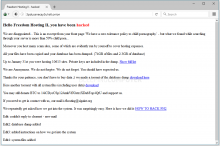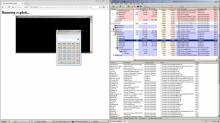BlackBerry offers secure mobile communications platform for developers
BlackBerry on Tuesday announced a new line of business to provide developers with a secure, cloud-based, mobile communications platform for texting, voice, video and file sharing.
Developers can insert these capabilities into their existing custom apps and services using the new BBM Enterprise SDK (software developer kit), BlackBerry said. The SDK will be sold as a per-user license on a subscription basis to developers, including those employed at enterprises, and to independent software vendors (ISVs).













































































